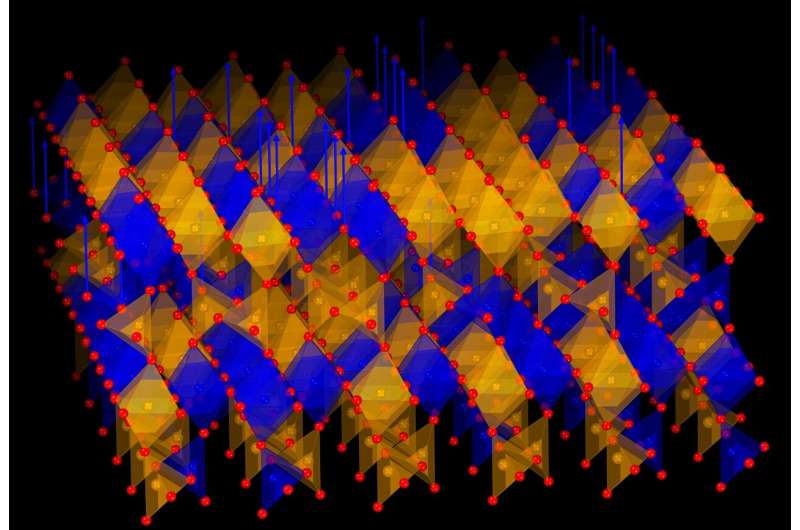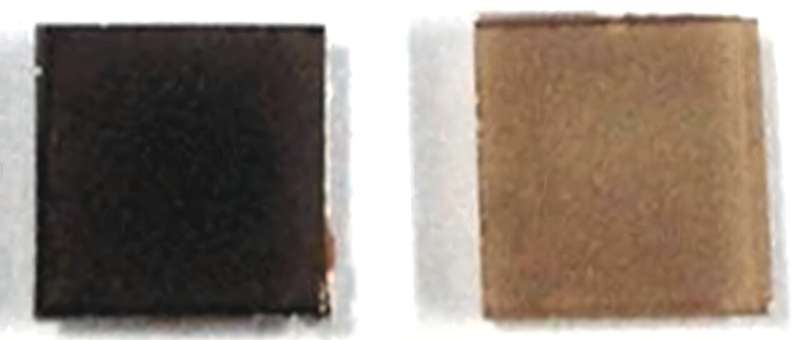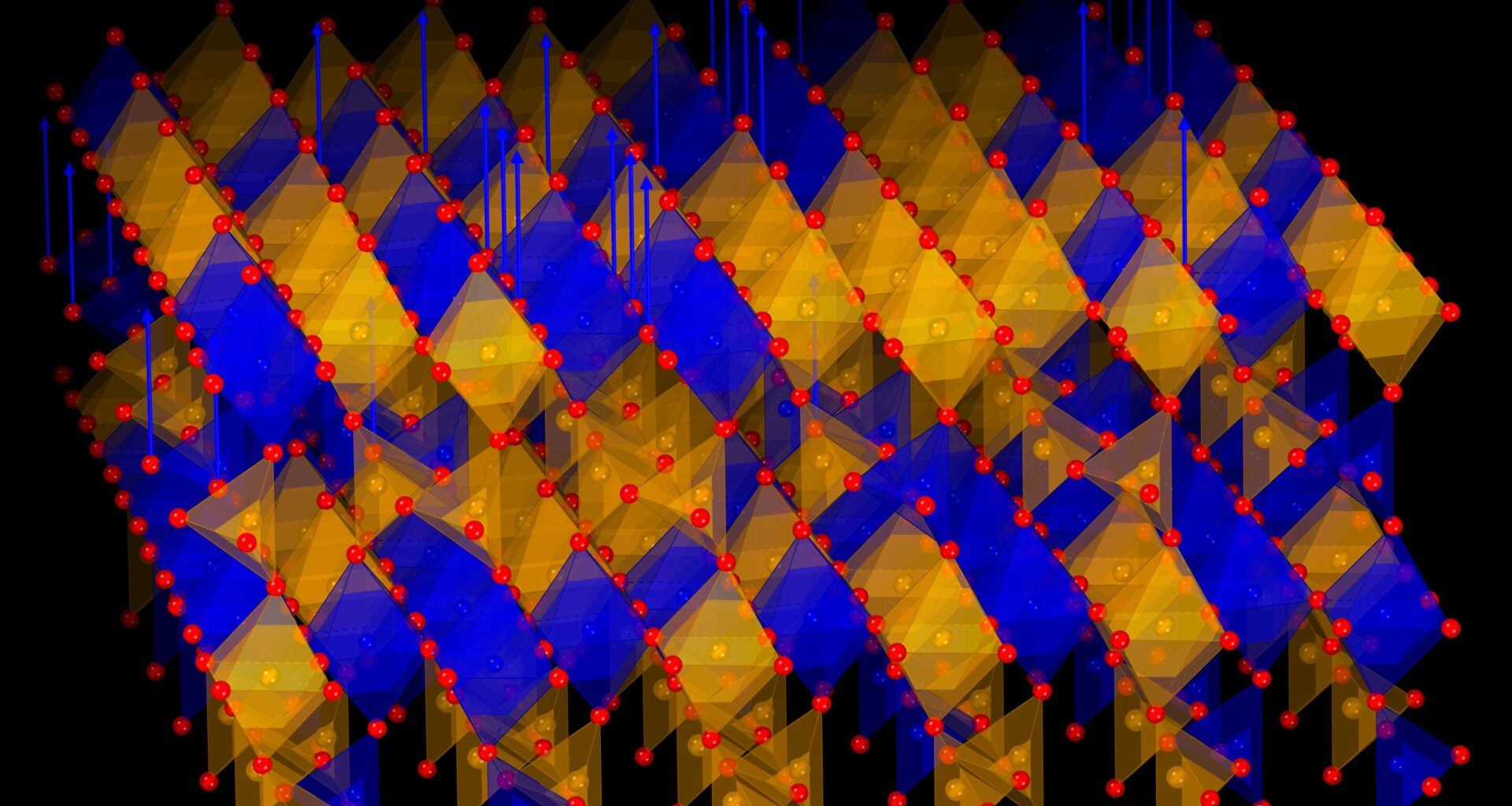
A schematic illustration of the oxygen-breathing in the new crystal, SrFe0.5Co0.5O2.5. The scientists have developed a special type of crystal with oxygen-breathing abilities, which could be used in clean energy technologies and next-generation electronics. Credit: Prof. Hyoungjeen Jeen from Pusan National University, Korea
A team of scientists from Korea and Japan has discovered a new type of crystal that can “breathe”—releasing and absorbing oxygen repeatedly at relatively low temperatures. This unique ability could transform the way we develop clean energy technologies, including fuel cells, energy-saving windows, and smart thermal devices.
The newly developed material is a special kind of metal oxide made of strontium, iron, and cobalt. What makes it extraordinary is that it can release oxygen when heated in a simple gas environment and then take it back in, all without falling apart. This process can be repeated many times, making it ideal for real-world applications.
This study has been led by Professor Hyoungjeen Jeen from the Department of Physics, Pusan National University, Korea, and co-authored by Professor Hiromichi Ohta from the Research Institute for Electronic Science, Hokkaido University, Japan. Their findings were published in the journal Nature Communications on August 15, 2025.
“It is like giving the crystal lungs and it can inhale and exhale oxygen on command,” says Prof. Jeen. Controlling oxygen in materials is crucial for technologies like solid oxide fuel cells, which produce electricity from hydrogen with minimal emissions. It also plays a role in thermal transistors—devices that can direct heat like electrical switches—and in smart windows that adjust their heat flow depending on the weather.

The oxygen-breathable crystal for the development of smart windows. (Left) The oxygen absorbed SrFe0.5Co0.5O2.5 and (right) oxygen released SrFe0.5Co0.5O2.25 films, visually confirming enhanced transparency upon reduction. Credit: Prof. Hyoungjeen Jeen from Pusan National University, Korea
Until now, most materials that could accomplish this kind of oxygen control were too fragile or operated only in harsh conditions like extremely high temperatures. This new material works under milder conditions and remains stable. “This finding is striking in two ways: only cobalt ions are reduced, and the process leads to the formation of an entirely new but stable crystal structure,” explains Prof. Jeen.
The researchers also showed that the material could return to its original form when oxygen was reintroduced, proving that the process is fully reversible. “This is a major step toward the realization of smart materials that can adjust themselves in real time,” says Prof. Ohta. “The potential applications range from clean energy to electronics and even eco-friendly building materials.”
More information:
Joonhyuk Lee et al, Selective reduction in epitaxial SrFe0.5Co0.5O2.5 and its reversibility, Nature Communications (2025). DOI: 10.1038/s41467-025-62612-1. www.nature.com/articles/s41467-025-62612-1
Provided by
Hokkaido University
Citation:
A new crystal that ‘breathes’ oxygen expands possibilities for clean energy and electronics (2025, August 15)
retrieved 16 August 2025
from https://phys.org/news/2025-08-crystal-oxygen-possibilities-energy-electronics.html
This document is subject to copyright. Apart from any fair dealing for the purpose of private study or research, no
part may be reproduced without the written permission. The content is provided for information purposes only.
